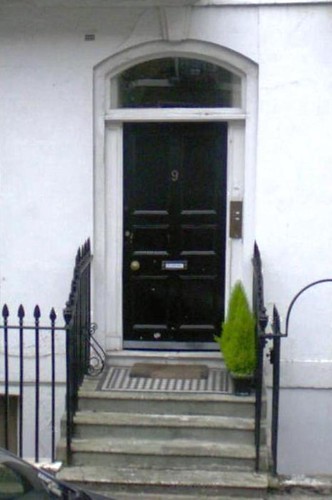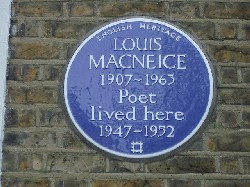A history of the club by Garrett Anderson, Hang Your Halo in the Hall: The Savile Club from 1868 (London: Savile Club, 1993), contains a section devoted to poets who were members of the club. Anderson relates a delightful anecdote concerning Reed having to appear in court to explain his inability to pay his council tax:
For his eightieth birthday in 1989 the Savile organized one of its more Lucullan Soirées to celebrate Sir Stephen's [Spender] years of membership and, as Patric Dickinson observed on the other occasion, nobody stopped talking for long. It is a pity that one of Spender's old friends, one of the more brilliant talkers in recent times, another Savile poet, Henry Reed, could not have been present.It should be pointed out that it was Reed's The Streets of Pompeii (1952) which won the Radio Italiana prize, for 1953.
Like several of his lyrical colleagues at the Savile, Henry brought translations of his classical predecessors as well as his own distinctive verse to a wider public through the medium of radio, and like Spender and Pudney he had been much influenced in his youth by Auden; like Pudney too he had served in Intelligence during the war and had produced one of the most famous poems in English to come out of it — "Naming of Parts". In 1946 his fellow Savilian Edward Sackville-West persuaded him to write a dramatization for radio of Moby Dick which was produced a year later featuring two other Savile members, Ralph Richardson and Bernard Miles. It won the Premio della Radio Italiana and established Henry with the critics as a radio dramatist with a rare poetic gift.
In 1970 a collection of his poems, The Lessons of War, was published to wide acclaim and in 1971 the texts of his poetic dramas for radio were published as The Streets of Pompeii. A Very Great Man and its sequels Hilda Tablet and Others also appeared, between them revealing much of the man himself, a master of comedy with a deeply sombre interior. In manner and appearance he resembled a classically educated Tony Hancock, presenting a lugubrious exterior from which emanated surprising flashes of wit. Many contemporary members will retain happy memories of evenings spent in his company. On one occasion when he was suffering one of his regular bouts of financial starvation he regaled the long table with an account of his appearance that morning before the magistrates to explain his inability to pay the rates: "And what, Mr Reed, is your profession?" asked the magistrate. Diffidently, Henry admitted that he was a poet. "Yes, yes," said the magistrate testily, "but what do you do for a living?"









